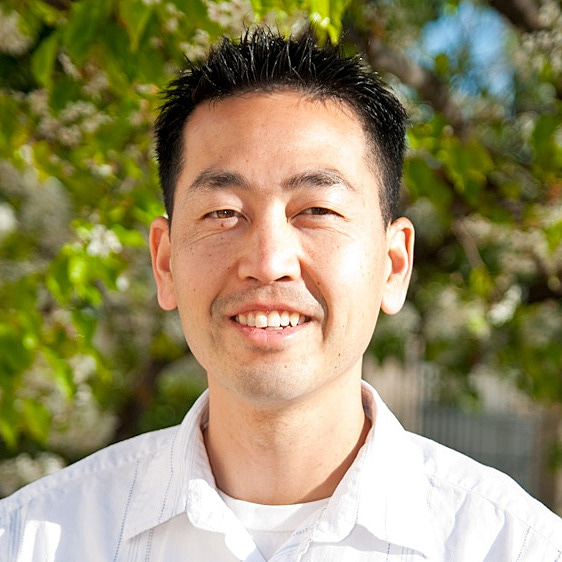“Woke” is a dirty word these days which can make us throw our biblical principles out the window. The ultra-conservatives spit out this four-letter word to silence any who “defend the rights of the poor and needy” (Proverbs 31:8–9). The ultra-progressives wear it as a badge of honor to elevate themselves instead of restoring opponents gently (Galatians 6:1–2). And arrogance blinds us all from admitting we are “poor in spirit” (Matthew 5:3).
Therefore, God’s Word must continually renew our minds. As Paul exhorts in 1 Thessalonians 5:14, we are called to help those wounded by discrimination, to encourage the fainthearted that change is possible, and to admonish the stubborn who deny complicity. We are also called to be patient with them all, for God offers grace both to sinners and to sufferers. We are not to cancel those for whom Christ has cancelled sin (Colossians 2:14).
Biblical counselors commit to listen charitably to people’s stories, then to lovingly speak the truth. We agree with H. B. Charles, Jr., “Truth without love is brutality. Love without truth is hypocrisy.” Yet in recent years, we’ve seen a disturbing trend among biblically-minded Christians to dismiss any talk of ethnic prejudice as requiring different treatment than life’s other problems. Being consumed with critical theory has turned us into culture warriors instead of counselors on the issue of race. Instead, as Paul Tripp expounded through Instruments in the Redeemer’s Hands, let’s remember and apply the cherished gospel truths as we Love, Know, Speak, and Do.
Love
True biblical counsel begins not with a sermon, but with genuine love for the people in our community. Like Jesus, we pour out our lives to seek their good (Philippians 2:3–5). We clothe each relationship in humility as we lay down our time and resources for the sake of others. Loving involvement means learning about their culture, traditions, and language as we become more like them instead of expecting them to become like us (1 Corinthians 9:19–23). Counselors love people well by listening to their stories, naming injustice rightly, and by walking with them slowly if they limp from prior wounds. The brokenhearted only learn to trust us as they witness our faithful presence over time. So, let’s treat one another as fellow image-bearers before trying to help each other change.
Know
Effective biblical counsel also requires labor to know the person before us just like we know God’s Word. Like Jesus, we ask good questions to explore their situation. Were they the ones at fault or were they wronged by someone else? What resources do they have to help them grow? Are they manifesting the Spirit’s fruit or fleshly deeds (Galatians 5:19–23)? Is their utmost desire to glorify God (Psalm 115:1)? What motives govern their thinking, emotions, and behavior (Proverbs 4:23)? Listen well—then interpret their story biblically before you offer counsel (18:13). A counselee should be able to say, “Yes, you have heard me and have diagnosed my heart correctly.” Too many of our conversations about race begin with assumption and prejudice before we truly know each other.
Once we discern the problem, then we can identify how our counselee can grow in sanctification. What must be learned about Christ and his finished work for them (Ephesians 4:21b)? What aspects of their old self still remain (v. 22) and which gospel truths will help to renew their mind (v. 23)? Then, how can they practically put on the new self and grow into the likeness of Christ (v. 24)? Knowing the person well and knowing the Scriptures deeply will help us bring the two together.
In the summer of 2020, our nation was upended by George Floyd’s sickening death, outrage in the streets and social media, and turmoil in our anxious hearts. Our church lost one family who accused us of spreading critical race theory, while other members felt muzzled when their small groups refused to even talk about black lives mattering. As schisms in society crept into our church, we launched a podcast and wrote a book together to let people tell their stories of grace and race. We worshipped and fellowshipped with partner churches in inner city Watts and ate at the table with folks from vastly different ethnic and socioeconomic backgrounds. We asked fellow believers why they marched with #BLM or retained an inherent distrust of police. We shared about the Japanese American internment, the challenges of the multigenerational Korean church, and the obstacles for recent Latin American immigrants. Getting to know one another stirred us to compassion and also gave us passport to speak into each other’s lives (Hebrews 10:24–25).
Speak
As we love people well and know them truly, compassionate biblical counselors then “speak the truth in love” (Ephesians 4:15). Like Jesus, we encourage those who have grown weary from racial strife or have lost all hope that “haters” can be transformed (John 4). We comfort those who have suffered the afflictions of others or have reaped the cost of sinful choices (Galatians 6:7–8). As we speak this truth in love, we direct such hurting people to Christ and his Word—the only source of lasting change (2 Timothy 3:16–17).
Even in this, however, we apply the gospel truths according to people’s nature. Are they foolish or rebellious, sufferer or sinner, Christian or unbeliever (1 Corinthians 1:18)? Do their struggles arise from ignorance, indifference, insensitivity, or idolatry? We expose any worldly thinking—either from the right or left—which clouds their sight. Then, we appropriately minister biblical truth with patient wisdom that we might “present everyone mature in Christ” (Colossians 1:28).
For those who inflict unjust prejudice, biblical counselors remind them from Scripture of their unity in Christ with fellow image-bearers who are made by God, shattered by the fall, rescued by the cross, and destined to share eternal glory. We help them understand both the meaning and the shape of biblical texts which condemn the prideful partiality for which our Savior died (James 2:1–9). Then, we not only warn them against cursing others made in our Creator’s likeness and against rash words which wound like sword thrusts (3:1–12; Proverbs 12:18), but we also instruct them to meditate on Scripture as they capture every thought in obedience to God’s Word (2 Corinthians 10:5). Most importantly, we direct those who inflict unjust prejudice to discover the joyful freedom of a changed heart which leads to changed behavior (7:9–11).
For those who endure discrimination, biblical counselors remind them from Scripture how our sinless Savior also suffered and has called them to suffer “in his steps” (1 Peter 2:21–22). We show them our heavenly Father’s heart for peace and justice—if not in this present life, then surely in the next (Amos 5:24). We help them release their bitterness and unforgiveness to the Lord, then teach them how to love their enemies, to pray for persecutors (Matthew 5:44), and to be angry at sin without becoming sinfully angry (Ephesians 4:26a). Most importantly, we assure them of their own identity as new creations and reconcilers in Jesus Christ, for only through Christ can the racist be forgiven and the reprobate born again (1 John 3:8–9). As counselors, let’s teach these truths with love, then trust God’s Word to radically transform hearts (Hebrews 4:12–13).
Do
As we speak the Scriptures, wise biblical counselors help rebuild lives and ministries on the rock (Matthew 7:24–27). Like Jesus, we exhort one another to “be doers of the word, and not hearers only” (James 1:22). Some counselees must either offer or request forgiveness, while others might simply sit down for a meal with believers of a different culture. Yet all of us must love with action—not just truth. So, as counselors, we are rigorously specific because nobody changes in “fuzzyland”— especially on matters of race. We supply our counselees with projects for growth as they focus on the “how” as well as the “what” of biblical transformation (Hebrews 3:13). We urge them to stay in church even when offended and not to give up too soon on the family God loves. For the world must see the Bride of Christ awake to love just like our Father first loved us (John 13:34–35; 1 John 4:19–21). We then trust that they will grow as they apply God’s Word and practice the means of grace (2 Peter 3:18).
The church moves toward wholeness as we welcome fellow believers, put to death our prejudice, and put on thoughts renewed by Christ. Our words and actions as counselors must reflect our Savior’s kindness just as our eagerness to forgive reflects his grace. Like Christ, we humbly sacrifice our comfort to bring about justice, peace, and reconciliation one person at a time. For the world must see the Bride of Christ awake to love just like our Father first loved us (John 13:34–35; 1 John 4:19–21). So, we remain a member of our local church even when others offend us. We walk faithfully with fellow believers as they explore what to think about race. And we don’t give up too soon on the family God has called us to love.
Competent biblical counselors offer hope in Christ to the worst of sinners and the most wounded of sufferers. We ask good questions until we know them well enough to understand their hearts (Proverbs 20:5). We then instruct the truth in love and teach them how to “do the Word” in practical, specific ways. Helping people change how they engage on racial issues requires our steadfast reliance upon God’s grace and the power of his Spirit. Christ himself then accomplishes genuine unity amongst those whose hearts are one (John 17:20–21). Therefore, “may the God of hope fill you with all joy and peace in believing, so that by the power of the Holy Spirit you may abound in hope. I myself am satisfied about you, my brothers, that you yourselves are full of goodness, filled with all knowledge and able to instruct one another” (Romans 15:13–14).
Note: This article is an excerpt from Grace, Race, and the Church and a seminar topic at the 2023 IBCD Summer Institute.



